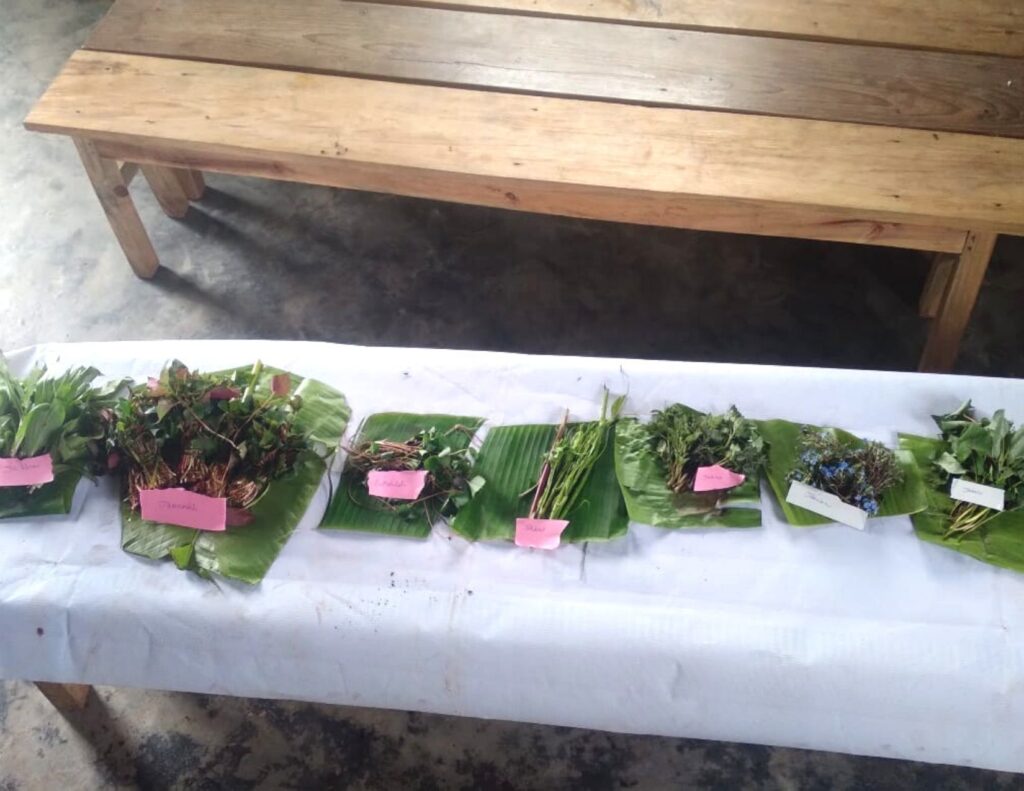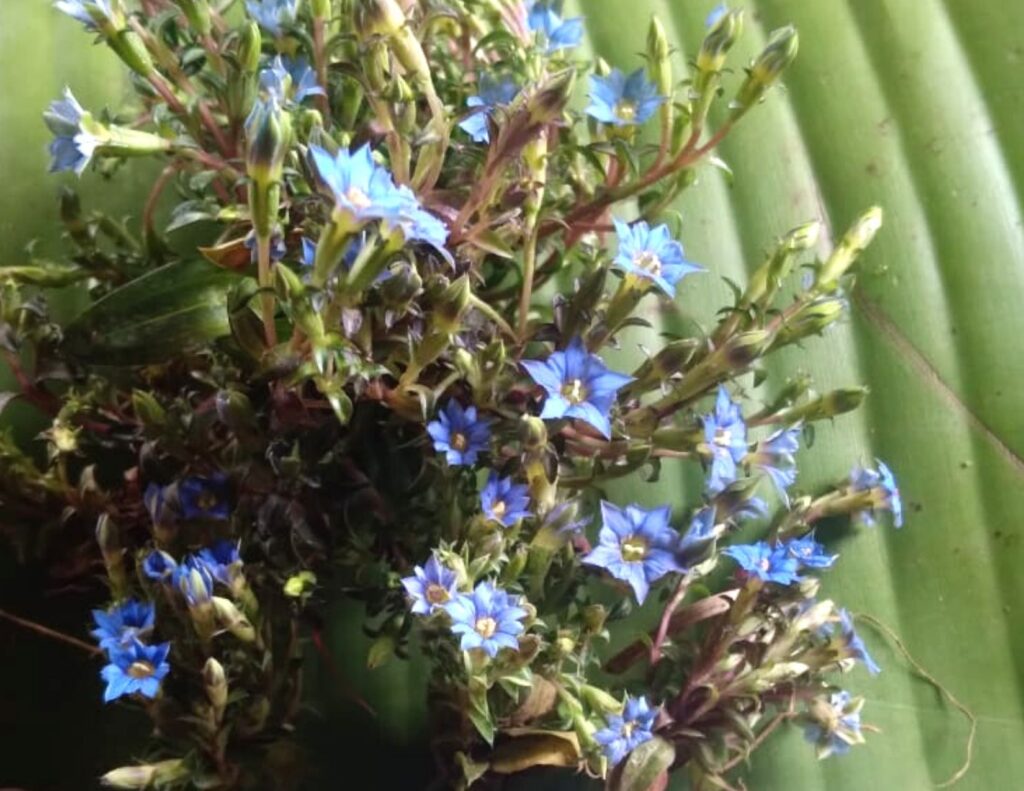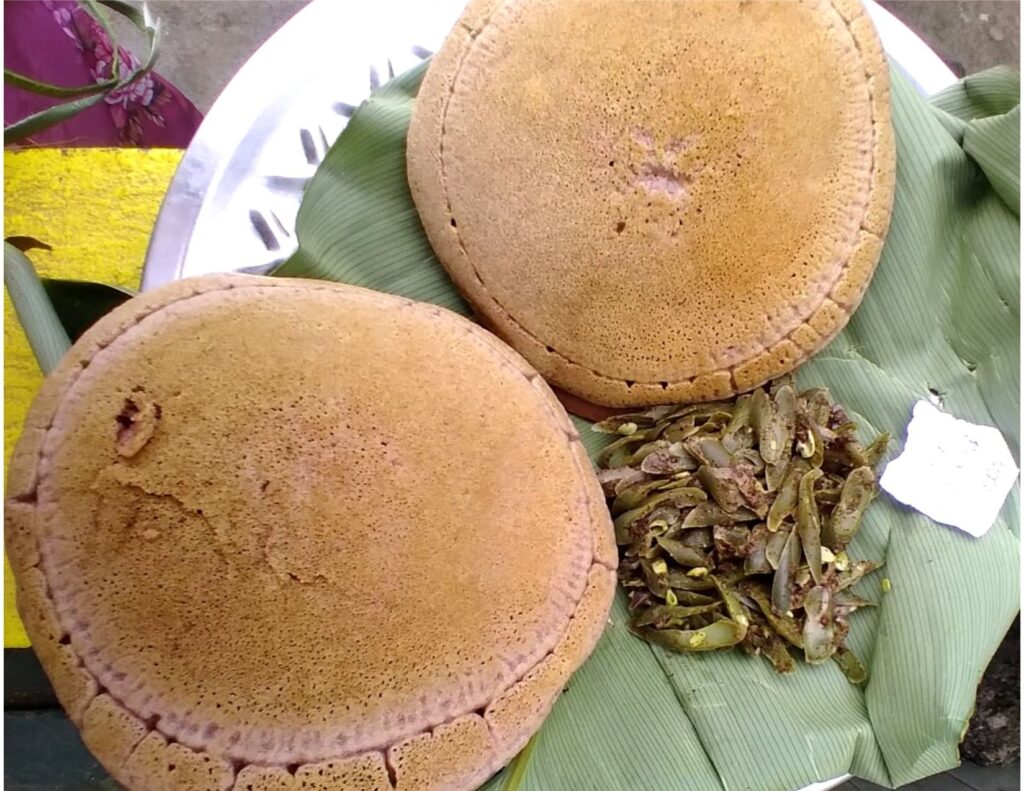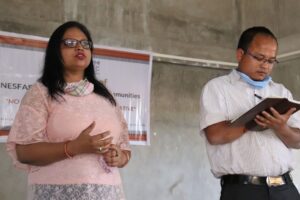Agrobiodiversity Walks conducted by Community Facilitators at Pyngkya and Nongwah communities in East Khasi Hills.
NESFAS and its communities have been regarded as guardians of the Indigenous Food Systems (IFS) for their continued work to promote and to conserve the traditional food systems and the agrobiodiversity that supports these systems. Among the many activities that have been devised by the organisation and the partner communities to promote IFS, Agrobiodiversity (ABD) Walks is one activity that has continuously strengthened the transmission of traditional knowledge from the elderly members and community facilitators (CFs) to the younger generations. In these walks, local knowledge holders lead groups of students/youths and introduce them to the various edible and medicinal plants that are available in the different food production systems. Their knowledge on the seasonality and benefits of the plants and the herbs are also shared with the group who document and catalogue them.
Two ABD walks were recently carried out at Pyngkya and Nongwah communities in East Khasi Hills as part of the ongoing project “Empowering Indigenous Communities through Agroecology Learning Circles (ALC) for resilient, integrated and innovative natural resource management”, supported by MBMA and funded by the World Bank.
ABD Walk at Pyngkya
The CF of Pyngkya along with the help of one custodian farmer, Kong Airihun Kshiar facilitated the ABD walk on March 28, 2022. There, the custodian farmer helped the children identify the available food plants as well as catalogue the different kind of herbs and plants that are available during the spring season. The custodian farmer also shared the value of each of the crop they identified while the CF documented the plants collected and the area where it is grown.
All in all, the children identified 20 food crops during the ABD walk. The CF will follow up with the children on the knowledge they have acquired with more ABD walks to be initiated during the other seasons to document the other available food plants season wise.

ABD Walk at Nongwah
The ABD walk at Nongwah was conducted on April 2, 2022 with the ALC members and other members of the community to explore the diversity of the local species of plants and wild edibles. A custodian farmer, Kong Stialinda Khasain led the walk. While the ABD walk was especially focused for the ALC members, a few children and village elders also voluntarily participated in the walk. In total, 81 community members took part in the ABD walk which started from the kitchen and ended at the nearby forest.

The main aim of the ABD walk is to facilitate knowledge exchange among the participants, at the same time, to appreciate the rich biodiversity of their community and the importance of protecting Mother Nature. The programme also helped young generation learn, identify and document cultivated crops and wild edibles found in various food production systems. They documented 11 wild edible plants and 5 cultivated food plants during the ABD walk.
Upon the conclusion of the ABD walk, the group proceeded to the ICDS centre where the CF gave a lowdown to the children about the nutritional content of the plants they had identified during the walk. The children were also taught on the importance of plants to the ecosystem as well as the value of Mother Nature and biodiversity for the survival of living beings. The day concluded with the members of the ALC participating in a cooking competition using their knowledge and skills to cook the vegetables and foraged foods.

Kong Stialinda Khasain expressed that ABD walks should continue from time to time to remind people, especially the younger generation, on the importance of Mother Nature and the conservation of the same.




Pingback: Wild leafy vegetable ‘Sohkhia Khlaw’: A highlight of Mawhiang’s agrobiodiversity walkNorth East Slow Food & Agrobiodiversity Society